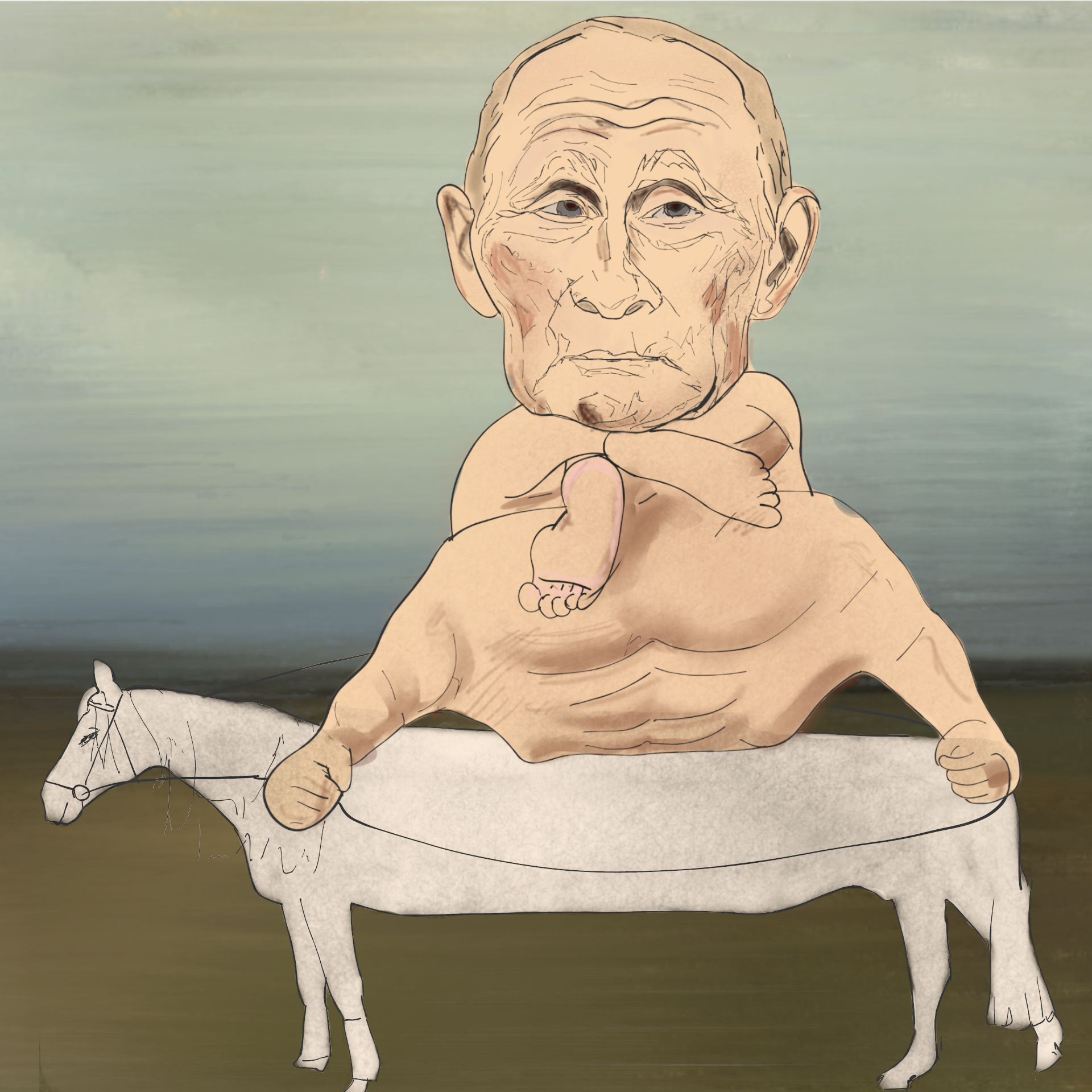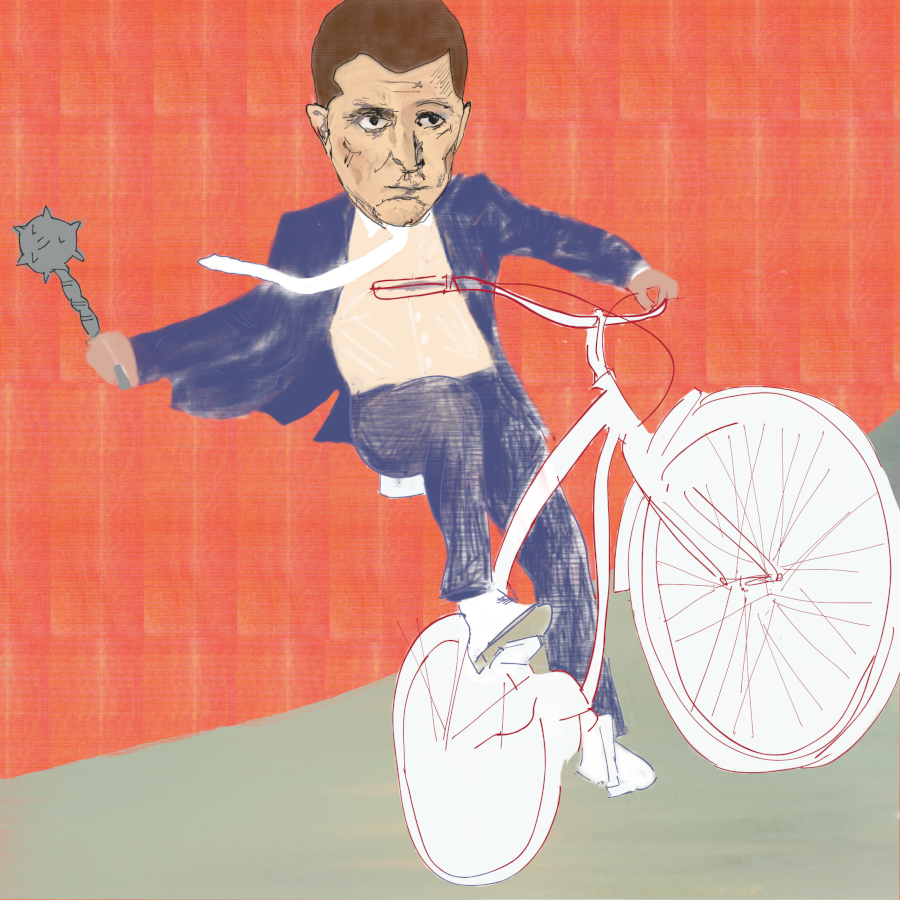On Clowns and Dictators.
Putin as a bare chested stretch Armstrong riding his very long horse.
Picture on the article ‘On Dictators and Clowns’ (Mirco Gopfert, June 2022, Anthropology Today).
Notes from the article: Our political present is grotesque. Politicians erupt as caricatures of themselves and comedians win elections. Satirical late night production outpace journalistic political coverage as bizarre parties gain traction. Humorous modes of political activism gain influence over public political commentary. Clowns turn into politicians, and politicians turn into grotesque dictators. What the hell is going on?
Humour and politics: special relationship, joke parties (Hungarian two tailed dog party), political activism draws on humour (parody, carnivalesque).
Chaplin on Hitler: ‘the face was obscenely comic- a bad imitation of me, with its absurd moustache, unruly stringy hair and disgusting thin little mouth. I could not take Hitler seriously'. Later though he did take Hitler seriously ‘this face of Hitler was no longer comic but sinister’. And yet, he goes on, we must laugh at this ‘hideous grotesque’ (Chaplin, 1964).
The Great Dictator: funny and dead serious all at once. Studying Fascism with and through humour- working with rather than merely on absurdities, allowed Chaplin to reveal that the grotesque and absurd are not mere anecdotes and side effects of Hitler and fascism but lie at the very heart of them.
War dislocates our understanding of normality, of serious and ridiculous.
Mary Douglas (1966): humour involves the transgression of boundaries, relating to tensions, including conflict, from which we also sort impure vs pure. -> war also involves the transgression of boundaries, inviting humour to redress. War and fascism are no laughing matter, yet they are full of absurdities and grotesque elements.
Humour as way of knowing the political present, humourists being experts in dissonances. The practice of humour thus offers a specific education by attention (Ingold 2014), regarding dissonances that elude conventional political analysis…. Humour is…. a powerful epistemic practice concerning politics.
Anthrops have been exploring the potential of art practices as means of knowledge production, doing research with rather than merely on art. What has not been fully explored is the epistemic potential of humour.

